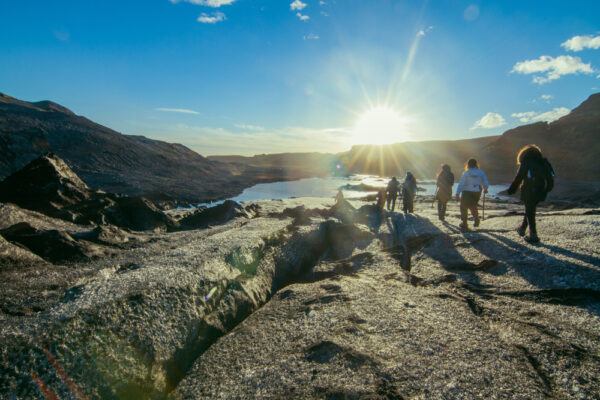Embracing Experiential Travel: The Journey Beyond Sightseeing
In a world where travel has become more accessible than ever, the way we experience new destinations has evolved. Gone are the days when ticking off landmarks and attractions from a checklist was the norm. Today’s travelers crave deeper connections, meaningful interactions, and authentic experiences that transcend the superficial. Welcome to the realm of experiential travel, where the journey is as significant as the destination.
What is Experiential Travel?
Experiential travel is all about immersing oneself in the local culture, traditions, and lifestyle of a destination. It’s not just about seeing new places but about feeling them, living them, and creating lasting memories through hands-on experiences. This type of travel encourages travelers to step out of their comfort zones and engage with their surroundings in a way that is both enriching and transformative.
The Essence of Experiential Travel:
- Cultural Immersion Experiential travel often begins with cultural immersion. This means more than just visiting museums and historical sites; it involves participating in local festivals, learning traditional crafts, and even sharing meals with local families. For instance, spending a day with a Balinese family, learning to cook traditional dishes, and understanding their customs can offer a deeper appreciation of Bali than a simple beach holiday ever could.
- Learning and Skill-Building Many experiential travelers seek to learn new skills or deepen existing ones during their journeys. This could range from taking a pottery class in Japan, learning tango in Argentina, or mastering the art of French patisserie in Paris. These experiences not only provide a unique way to engage with the local culture but also leave travelers with new skills and knowledge.
- Adventure and Exploration For the adventurous at heart, experiential travel offers a plethora of options. Think trekking through the Amazon rainforest with indigenous guides, diving into the Great Barrier Reef, or exploring the Icelandic wilderness on horseback. These activities provide a direct connection to nature and often lead to personal growth and self-discovery.
- Volunteering and Giving Back Voluntourism, or volunteer travel, is a growing trend within experiential travel. Travelers spend part of their trip volunteering for local projects, from wildlife conservation in Africa to teaching English in rural Cambodia. This not only allows travelers to give back to the communities they visit but also fosters a deeper understanding of the local challenges and realities.

The Benefits of Experiential Travel:
- Authentic Connections By engaging with locals and immersing oneself in the culture, experiential travelers often form meaningful connections and friendships that can last a lifetime. These interactions provide insights into the local way of life that go far beyond guidebook descriptions.
- Personal Growth Experiential travel pushes individuals out of their comfort zones, challenging them to try new things and face unfamiliar situations. This often leads to increased confidence, adaptability, and a broader perspective on the world.
- Lasting Memories The hands-on, immersive nature of experiential travel creates vivid and lasting memories. Rather than a collection of photos in front of famous landmarks, travelers return home with stories of personal encounters and transformative experiences.
- Sustainable Impact Experiential travel often supports sustainable tourism practices. By engaging with local communities, travelers contribute to the local economy and help preserve cultural heritage. Volunteering and eco-friendly activities further enhance this positive impact.
How to Plan an Experiential Trip:
- Research and Planning Start by researching destinations and experiences that align with your interests and values. Look for local tour operators and organizations that specialize in experiential travel.
- Engage with Locals Seek opportunities to interact with locals, whether through homestays, community tours, or language classes. These interactions are at the heart of experiential travel.
- Be Open-Minded Embrace new experiences with an open mind and a willingness to step out of your comfort zone. Remember that the goal is to connect deeply with the destination and its people.
- Travel Responsibly Support sustainable and ethical travel practices. Choose eco-friendly accommodations, respect local customs, and consider the environmental and social impact of your activities.
Conclusion:
Experiential travel is more than just a trend; it’s a way of exploring the world that fosters genuine connections, personal growth, and a deeper understanding of the places we visit. By immersing ourselves in the local culture, learning new skills, and embracing adventure, we can transform our travel experiences into meaningful and lasting journeys. So, the next time you plan a trip, consider taking the experiential route and discover the true essence of travel.
By adopting an experiential approach, you’ll find that travel becomes not just about the destinations you visit but about the transformative experiences and memories you create along the way. Happy travels!
FAQs:
What is experiential travel?
Experiential travel is a type of travel that emphasizes deep engagement with the local culture, traditions, and lifestyle of a destination. It focuses on hands-on activities and immersive experiences that go beyond typical sightseeing.
How is experiential travel different from regular tourism?
Unlike regular tourism, which often centers around visiting famous landmarks and attractions, experiential travel prioritizes meaningful interactions and personal experiences. It’s about connecting with locals, learning new skills, and participating in everyday activities.
What are some examples of experiential travel activities?
Examples include:
- Cultural immersion: Participating in local festivals, cooking classes, or craft workshops.
- Skill-building: Learning traditional dance, martial arts, or art forms.
- Adventure activities: Trekking, diving, or wildlife safaris guided by locals.
- Volunteering: Contributing to community projects, conservation efforts, or educational programs.
Why should I choose experiential travel?
Experiential travel offers a deeper connection to the destination, fostering personal growth, creating lasting memories, and supporting sustainable tourism practices. It allows you to gain a genuine understanding of the local culture and way of life.
How do I find experiential travel opportunities?
Research online for local tour operators, community-based tourism initiatives, and travel agencies specializing in experiential travel. Look for reviews and recommendations from fellow travelers who have participated in similar experiences.
Is experiential travel suitable for solo travelers?
Yes, experiential travel is excellent for solo travelers. It provides opportunities to meet and interact with locals and other travelers, often leading to new friendships and a sense of community.
Can families participate in experiential travel?
Absolutely! Many experiential travel activities are family-friendly and can be tailored to include children, making it a great way for families to learn and grow together while exploring new destinations.
How can I ensure my experiential travel is sustainable?
Choose experiences that prioritize sustainability and ethical practices. Look for eco-friendly accommodations, support local businesses, and engage in activities that respect and preserve the local culture and environment.
What should I pack for an experiential travel trip?
Pack light and versatile clothing suitable for the local climate and activities. Include comfortable walking shoes, a reusable water bottle, and any necessary gear for specific activities. Don’t forget essentials like a travel guide, maps, and a journal to document your experiences.
How can I prepare for cultural differences during my experiential travel?
Research the destination’s customs, traditions, and social norms beforehand. Learn a few basic phrases in the local language, be respectful of local practices, and maintain an open mind and positive attitude towards cultural differences.
How can I document my experiential travel journey?
Keep a travel journal to note down your experiences, thoughts, and reflections. Take photos and videos, but also remember to be present and fully engage in the moment. Sharing your stories through a blog or social media can inspire others and keep your memories alive.
What are some popular destinations for experiential travel?
Popular destinations include:
- Italy for cooking classes and art history.
- Japan for cultural immersion and traditional crafts.
- Peru for trekking and archaeological exploration.
- Thailand for wellness retreats and culinary experiences.
- South Africa for wildlife safaris and community projects.
Can I combine experiential travel with traditional sightseeing?
Absolutely! Combining experiential travel with traditional sightseeing allows you to enjoy the best of both worlds. Balance your itinerary with iconic landmarks and immersive experiences for a well-rounded travel adventure.




